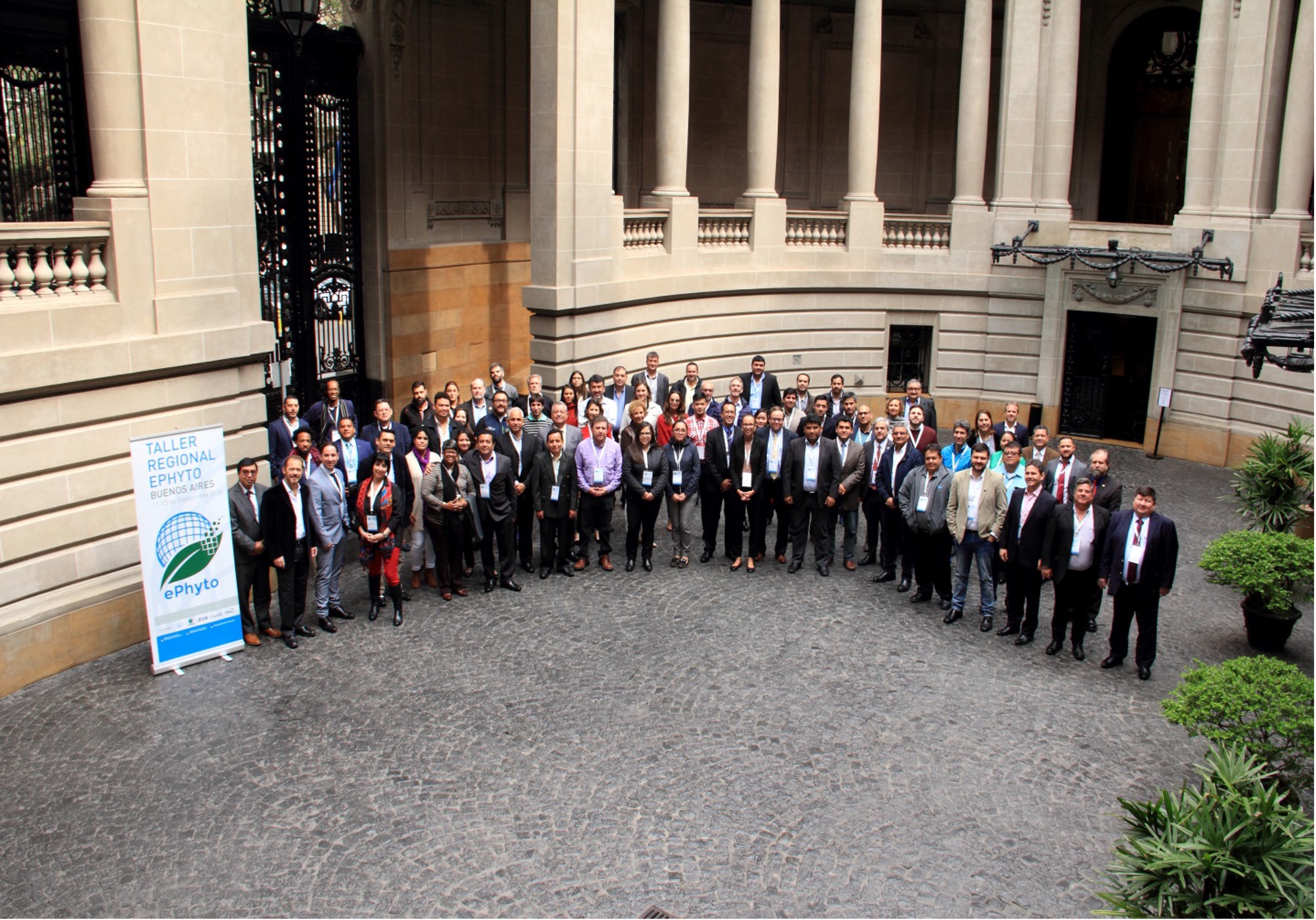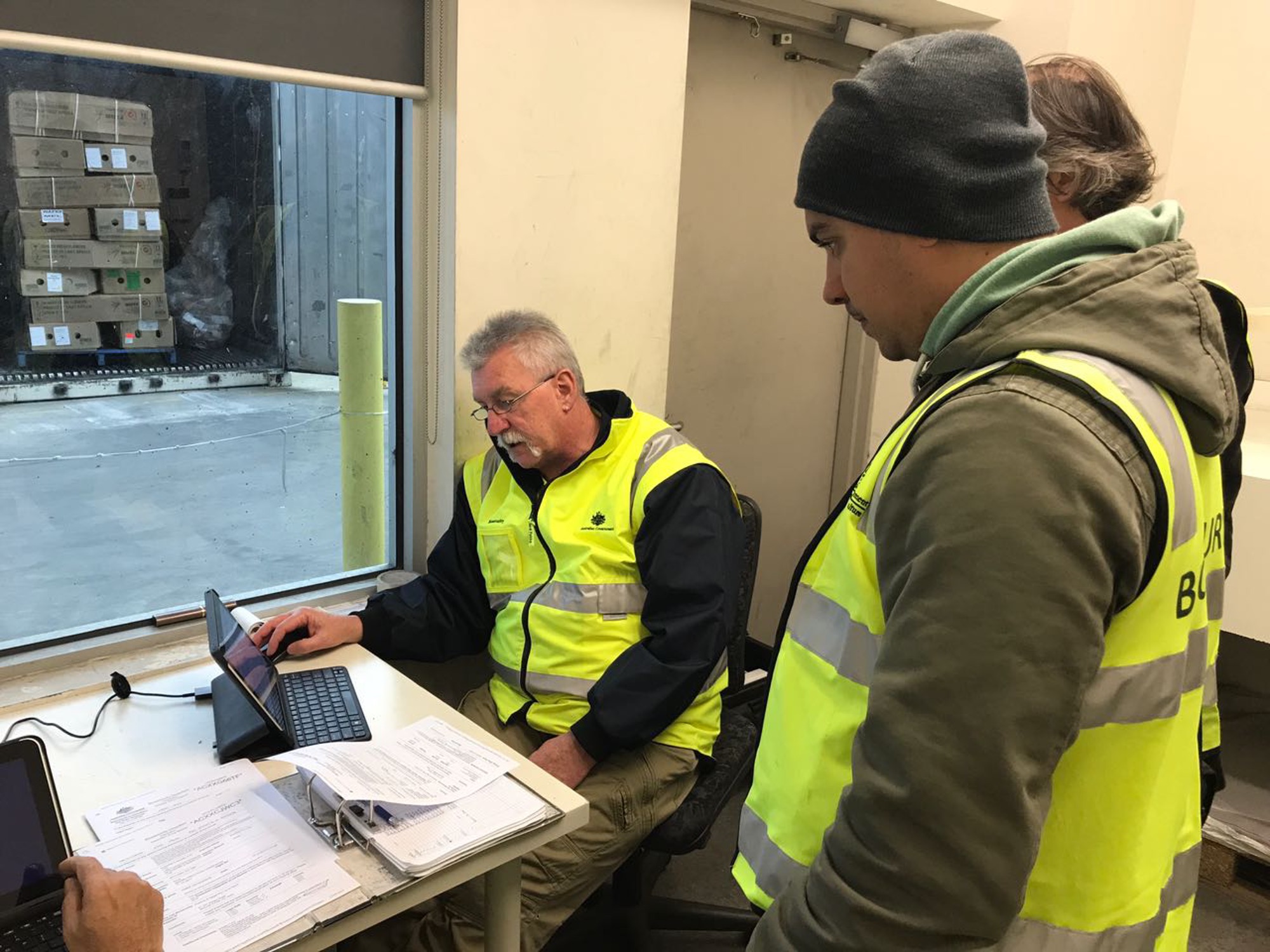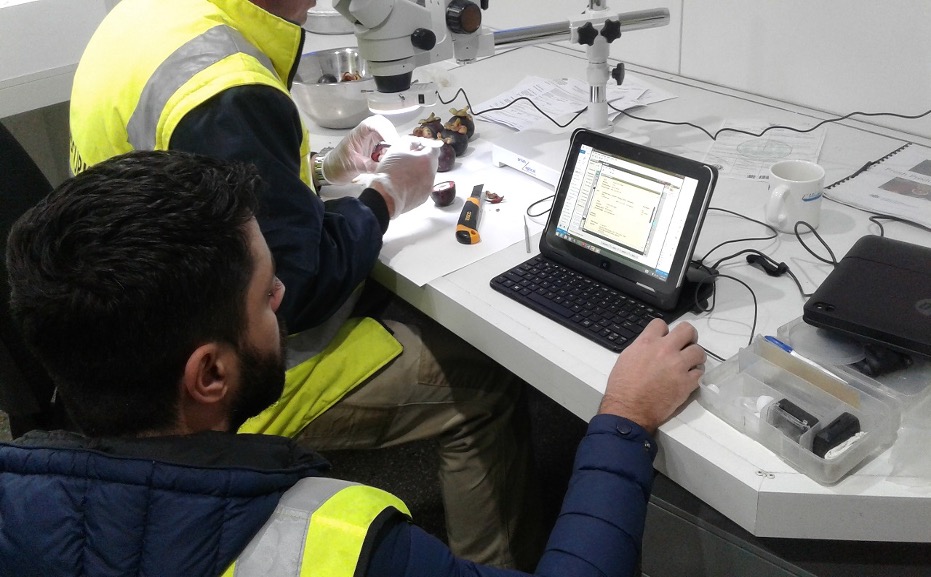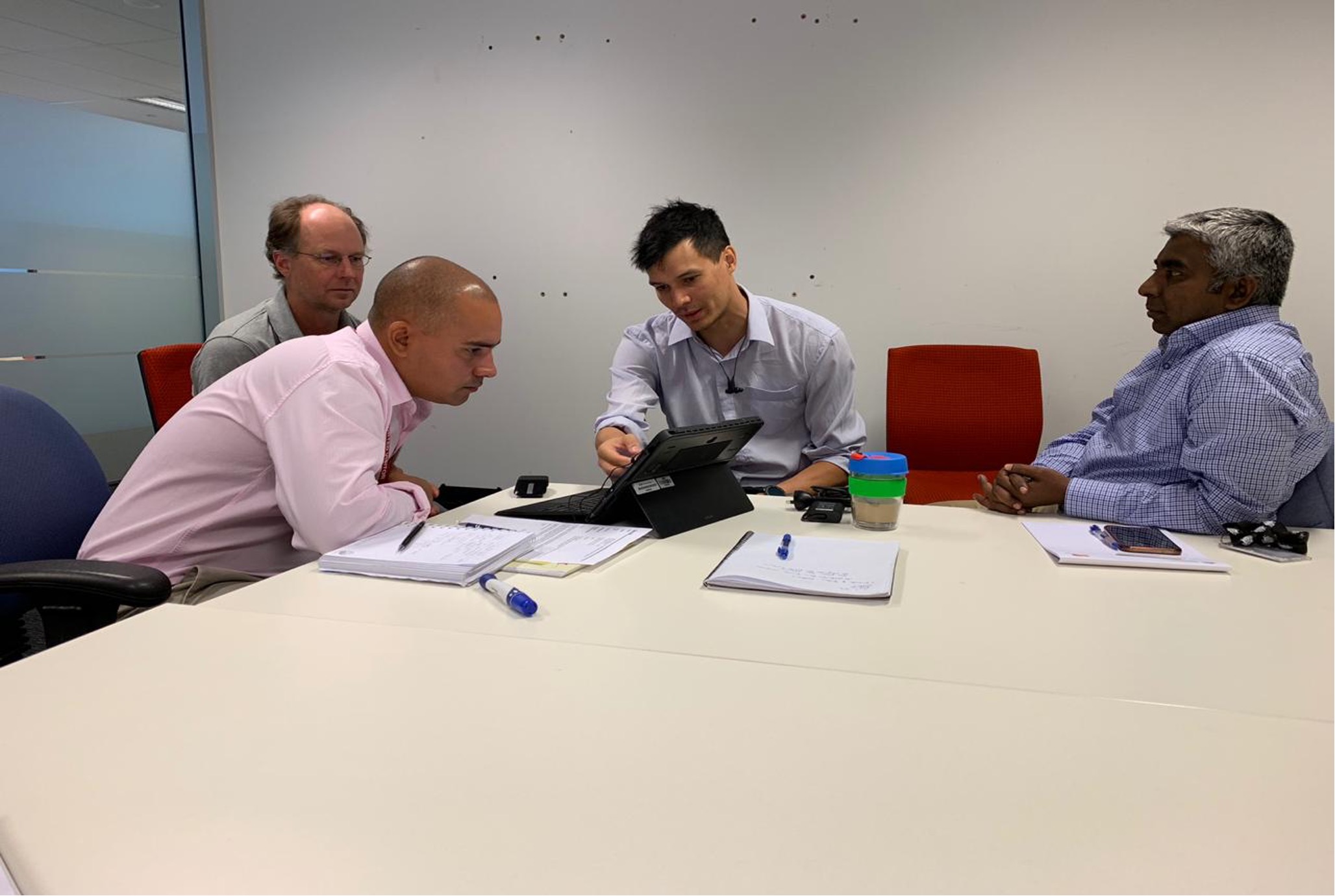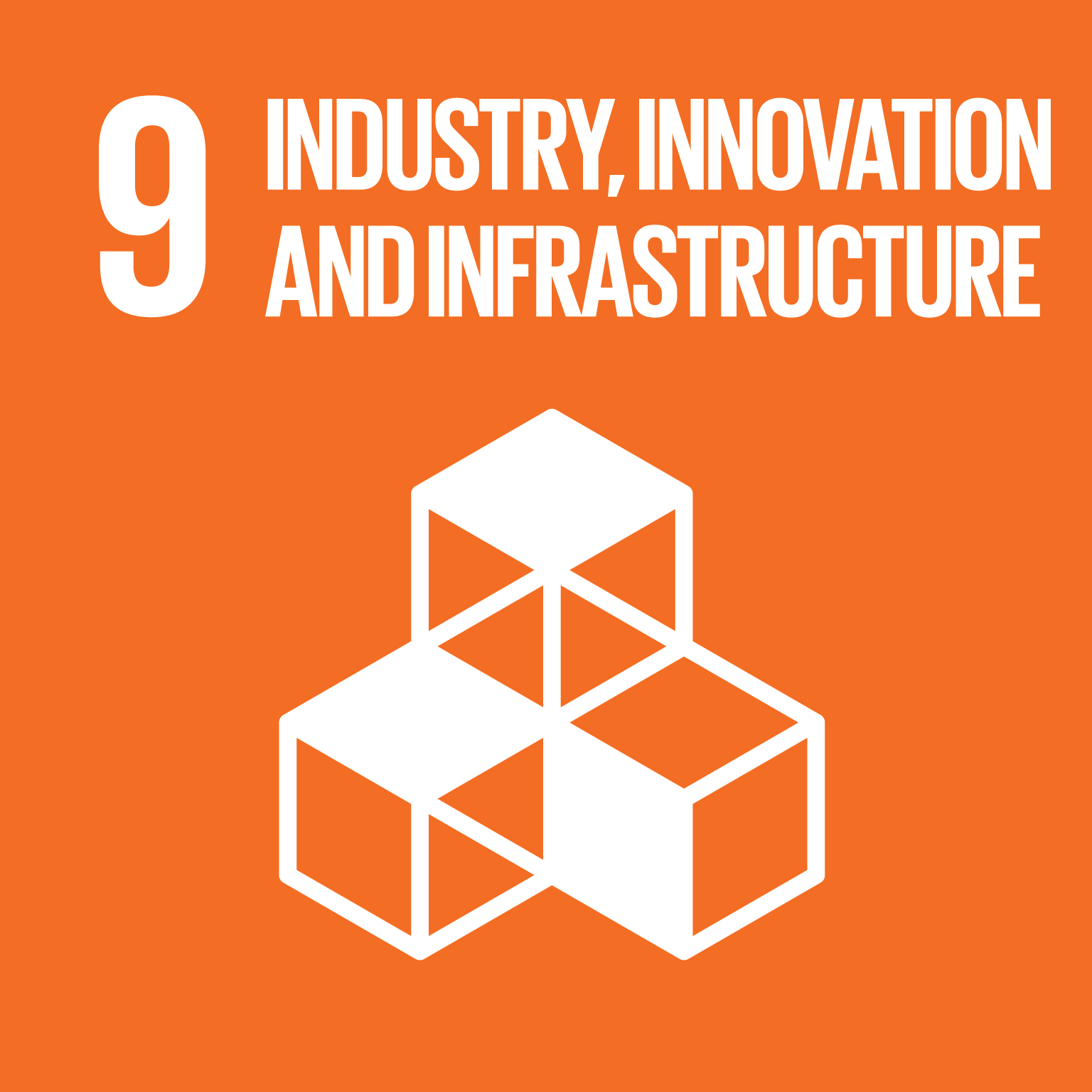 Electronic Phytosanitary Certificates
Knowledge exchanges on e-Phyto design and implementation to facilitate trade and promote economic growth
Electronic Phytosanitary Certificates
Knowledge exchanges on e-Phyto design and implementation to facilitate trade and promote economic growth

Challenges
A phytosanitary certification system is used by countries that export goods to attest that their consignments meet the phytosanitary requirements of the importing countries. This process specifically facilitates international trade of plants, plant products and other regulated articles by providing an interna- tionally agreed certification and following related procedures.
An electronic form of this certificate will eventually replace phytosanitary certificates in paper form and will create opportunities to facilitate phytosanitary exchanges in an innovative, cost effective and globally harmonized electronic environment. E-Phyto, the electronic version of a paper phytosanitary certificate, reduces the possibility of fraudulent documentation for international trade, improves efficiency and speeds up the process of releasing the goods exchanged between countries. Electronic certificates are expected to promote economic growth of participating economies through lower certi- fication costs and facilitate trade.
Several countries are already developing electronic certification. Argentina and Australia are among the world leaders of this initiative and both can benefit from sharing their experience and lessons learned not only with each other, but to promote trade and economic growth throughout the Latin America and South Pacific regions.
Towards a Solution
The e-Phyto and Trade Modernization project emerged in 2017 as a result of a strategic cooperation project between Argentina and Australia. As part of the High-Level Strategic Dialogue on Agriculture (DEANA) carried out on the side lines of the G20 Agriculture Ministers’ Summit held in Buenos Aires in July 2018, Argentina and Australia committed to advancing cooperation in this area, including enhancing their leadership in their respective regions and strengthening their alliance and position as advocates of fair and rules-based international trade.
The e-Phyto and Trade Modernization project has completed two stages already and a third one is being developed. The project’s responsible and implementing institutions are Australia’s Department of Agriculture and Water Resources (DAWR) and Argentina’s National Service of Health and agri-food quality (SENASA). Financial support comes from DAWR and the Argentine International Fund for Cooperation (FOAR). Several missions have been carried out by Argentine and Australian experts since 2017. National and regional seminars were held with participants from neighbouring countries also taking part in the initiative.
The first phase of the project, taking place in 2017 and 2018, was an “Exchange of experiences in electronic phytosanitary certification systems.”The objective was to forge a strong collaborative relationship between Argentina and Australia in e-Phyto and to improve institutional capacities for the development and operation of this type of certification through intergovernmental cooperation for regional benefit. This was achieved through a visit of two Argentine experts to Australia in July 2017 and a visit of an Australian expert to Argentina in September 2018.
In parallel, the first e-Phyto workshop for the Latin America Region was held in Buenos Aires. The Plant Health Committee from South America (COSAVE) and the Inter-American Institute for Cooperation on Agriculture (IICA) provided financial support for the workshop. The workshop was attended by 78 participants from 17 Latin American countries (Belize, Bolivia, Brazil, Chile, Colombia, Costa Rica, Cuba, the Dominican Republic, Ecuador, El Salvador, Guatemala, Mexico, Nicaragua, Panama, Paraguay, Peru, Uruguay) and Canada, in addition to experts from Australia, the United States and Viet Nam and represent- atives from the private sector.
Presentations were made on e-Phyto, inter-regional collaboration, trade facilitation, the Hub, the National Generic System, and other topics. Participants presented the e-Phyto situation in their country and their needs for which Argentina could collaborate based on what was learned in the exchange with Australia. This workshop increased the understanding of e-Phyto in the region, based on knowledge gained during Argentina’s visit to Australia.
The second phase,“Electronic phytosanitary certification,”took place in 2019 and 2020. The objective was for Argentina and Australia to lead the regional uptake of e-Phyto as a focal driving force and to improve institutional capacities for the implementation of electronic phytosanitary certification. This phase involved the visit of two Argentine experts to Australia in February 2019 and a visit of an Australian expert to Argentina in February 2020. In this phase, Argentina and Australia acquired new knowledge on the linkage between DAWR and private systems, improvements in Plant Export Management Systems (PEMS), integration between public and private systems and traceability in grains, authentication, security and communication protocols, functioning and links between RegPOV and CertPOV and the use of Standard International Trade Classification (SITC) nd linkages with each estab- lishment’s own traceability systems.
During this second phase a workshop was held with the Argentine private sector in Buenos Aires in February 2020 that helped involve the private sector in electronic phytosanitary certification. The private sector conducted some case studies to evaluate the impact of e-Phyto in their processes. The workshop was attended by 18 people from the Argentine private sector and experts from DAWR and SENASA. Introductory presentations were made on e-Phyto, the functioning of the HUB, the Generic System and the Australian experience link- ing the public and private sectors. Live demonstrations were done of the exchange through the HUB of the Phytosanitary Certificate and an explanation provided of the tools available to SENASA that could complement the electronic certification.
The first two project stages were instrumental in recognizing the similarities in the export and import certification procedures in Australia and Argentina, and the disadvantages faced by the agencies of both countries and the possibility of sharing their experiences to solve them. Both were South-South and triangular cooperation good practices since they led to the systemic, cross-country transfer of good practices and knowledge between two or more countries of the South for their mutual benefit. Moreover, these project phases addressed various challenges facing implementation of the e-Phyto system, providing innovative solutions based on the experiences and technical knowledge already achieved by Argentina and Australia. These project phases demonstrated progressive solutions to pressing development challenges and how effective collaboration between developing countries can improve their compet- itive advantages.
A third stage of the project is currently under way that will work on, among other things, supporting Latin American countries that have expressed interest in opting for the Generic e-Phyto National System, such as Cuba, Dominican Republic, Guatemala and Mexico.
The e-Phyto and Trade Modernization project contributes to the achievement of SDG 9 (industry, innovation and infrastructure) and SDG 8 (decent work), not only for the Argentine and Australian populations, but also for other countries in the Latin American and Asia Pacific regions. Specifically, it entails the creation of jobs, since a network of suppliers linked to e-Phyto technology solutions are needed to carry out this new system. Additionally, the project promotes the economic growth of participating economies through lower certification costs and trade facilitation.
Contact Information
Countries involved
Supported by
Implementing Entities
Project Status
Project Period
URL of the practice
Primary SDG
Primary SDG Targets
Secondary SDGs
Secondary SDG Targets
Similar Solutions
| NAME OF SOLUTION | Countries | SDG | Project Status | |
|---|---|---|---|---|
100% Online Electronic Apostille and Legalization Sharing Colombia’s effective e-government system with other countries in the region |
Argentina, Australia, Belize, Bolivia (Plurinational State of), Brazil, Canada, Chile, Colombia, Costa Rica, Cuba, Dominican Republic, Ecuador, El Salvador, Guatemala, Mexico, Nicaragua, Panama, Paraguay, Peru, Uruguay, Viet Nam | 16 - Peace and Justice Strong Institutions | Completed | View Details |
Accelerator Labs Network Following collective intelligence methods to address emerging sustainability challenges and the growing demand for local solutions |
Argentina, Australia, Belize, Bolivia (Plurinational State of), Brazil, Canada, Chile, Colombia, Costa Rica, Cuba, Dominican Republic, Ecuador, El Salvador, Guatemala, Mexico, Nicaragua, Panama, Paraguay, Peru, Uruguay, Viet Nam | 08 - Decent Work and Economic Growth 13 - Climate Action | Ongoing | View Details |
Accessibility of Financial Services and the Private Sector in Africa Maximizing the impact of financial cooperation on economic development and industrialization in Africa |
Argentina, Australia, Belize, Bolivia (Plurinational State of), Brazil, Canada, Chile, Colombia, Costa Rica, Cuba, Dominican Republic, Ecuador, El Salvador, Guatemala, Mexico, Nicaragua, Panama, Paraguay, Peru, Uruguay, Viet Nam | 08 - Decent Work and Economic Growth | Completed | View Details |
Accessibility ToolKit Promoting accessibility as a cornerstone for inclusive digital development in Bangladesh. |
Argentina, Australia, Belize, Bolivia (Plurinational State of), Brazil, Canada, Chile, Colombia, Costa Rica, Cuba, Dominican Republic, Ecuador, El Salvador, Guatemala, Mexico, Nicaragua, Panama, Paraguay, Peru, Uruguay, Viet Nam | 08 - Decent Work and Economic Growth | Completed | View Details |
ACP Business-friendly Supporting business-friendly and inclusive national and regional policies, and strengthening productive capabilities and value chains |
Argentina, Australia, Belize, Bolivia (Plurinational State of), Brazil, Canada, Chile, Colombia, Costa Rica, Cuba, Dominican Republic, Ecuador, El Salvador, Guatemala, Mexico, Nicaragua, Panama, Paraguay, Peru, Uruguay, Viet Nam | 08 - Decent Work and Economic Growth 17 - Partnerships for the Goals | Ongoing | View Details |
